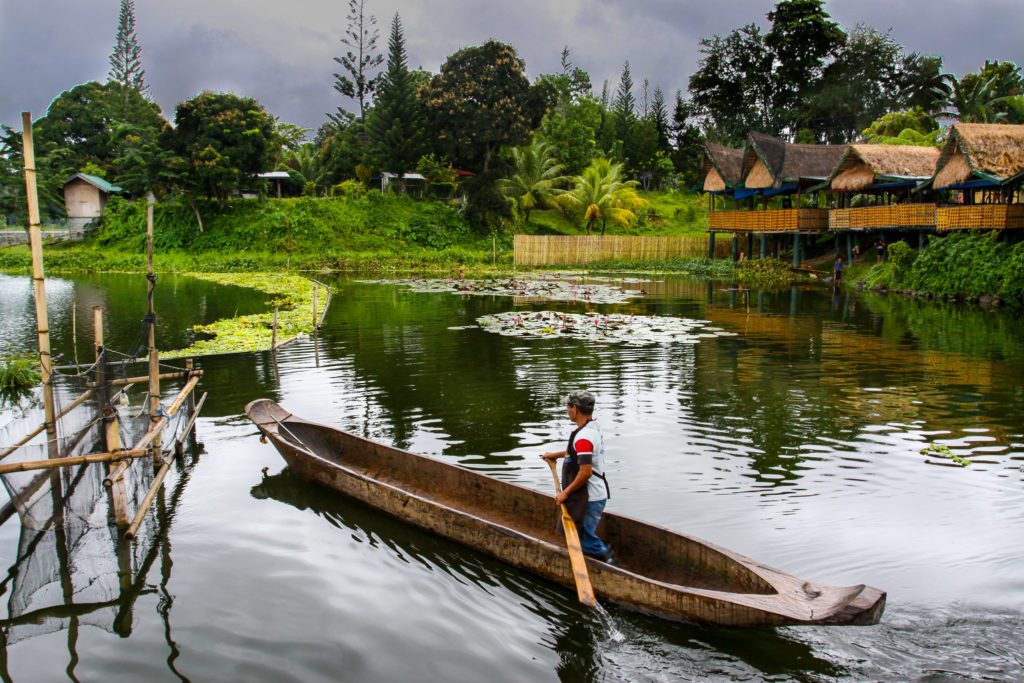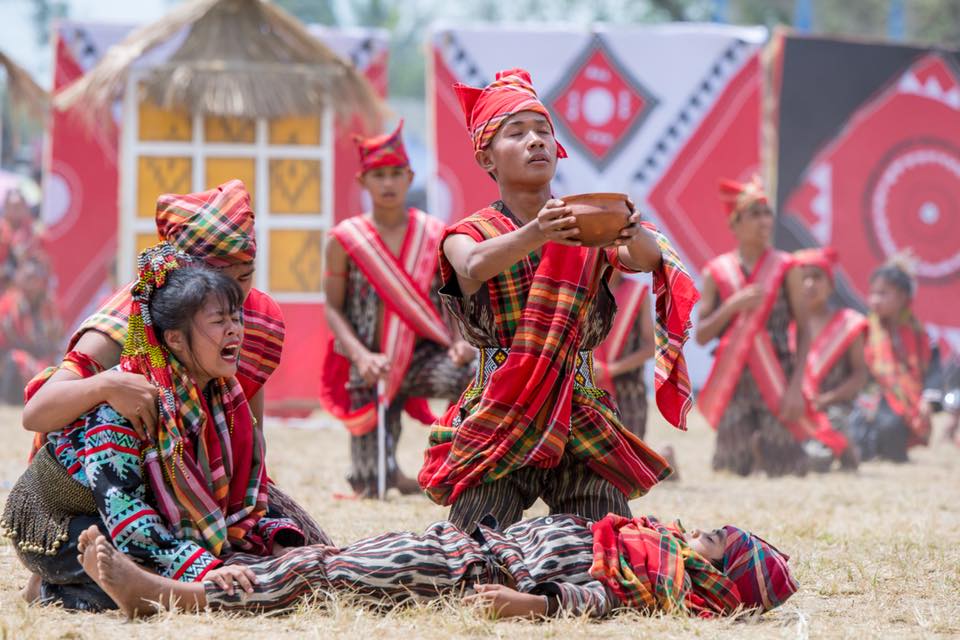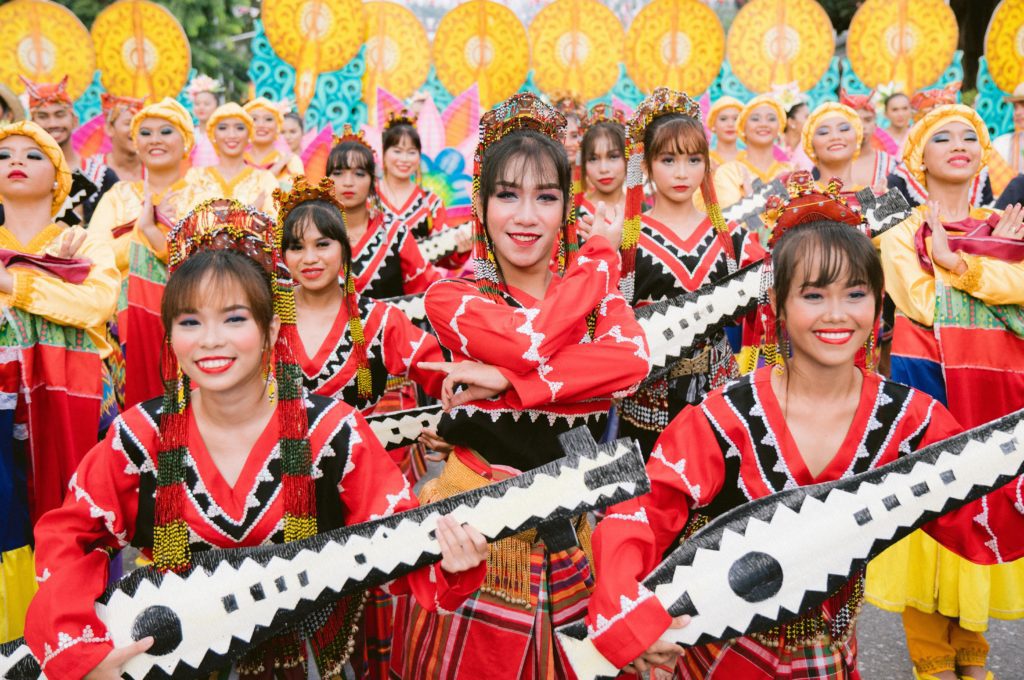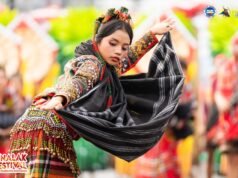Exploring Lake Sebu: A Guide to the Natural Wonder of South Cotabato
Nestled in the highlands of South Cotabato, Philippines, Lake Sebu stands as a beacon of natural beauty and cultural heritage. This serene lake, surrounded by lush forests and rolling hills, is not just a scenic destination but a cultural sanctuary for the indigenous T’boli tribe. Lake Sebu offers a unique blend of ecological wonders and rich cultural traditions, making it a must-visit for eco-tourists and adventure seekers alike.
The Natural Beauty of Lake Sebu

Geographical Setting
Lake Sebu is cradled in the heart of South Cotabato, serving as a jewel in the lush landscapes of Mindanao, Philippines. This enchanting lake, set at an elevation of approximately 300 meters above sea level, provides a cool and refreshing climate that is a welcome retreat from the country’s predominantly tropical weather. The area’s geography features rolling hills, dense forests, and a rich tapestry of biodiversity, offering a serene backdrop to the crystal-clear waters of the lake itself.
The lake spans an area of around 354 hectares, with its waters fed by natural springs and a complex river system that contributes to its rich aquatic ecosystem. The surrounding landscape is marked by its volcanic soil, courtesy of the ancient eruptions of the nearby Mt. Parker, which has contributed to the fertility of the land and the lushness of the surrounding vegetation. This fertile land supports a diverse array of flora, from towering hardwood trees to rare and exotic orchids, creating a verdant paradise that surrounds the lake.
Beyond its natural beauty, Lake Sebu’s geographical setting plays a crucial role in the culture and livelihood of the indigenous communities that inhabit the area. The lake and its surrounding forests are not just a source of inspiration for the T’boli tribe’s art and traditions but also provide essential resources for their sustenance and craft. The interplay between the natural environment and the people’s way of life highlights the importance of preserving this unique ecological and cultural landscape.
As a focal point for eco-tourism, Lake Sebu’s geographical features offer a myriad of opportunities for exploration and adventure. The area’s topography, with its varied elevation, provides the perfect setting for trekking, bird watching, and immersing oneself in the tranquility of nature. The lake itself, with its expansive and serene waters, invites visitors to partake in reflective boat rides or to simply bask in the peaceful ambiance that this natural haven provides.
The geographical setting of Lake Sebu is a testament to the awe-inspiring beauty of the Philippines’ natural landscapes. It stands as a reminder of the delicate balance between nature and culture, urging those who visit to tread lightly and with respect, ensuring that this paradise remains untouched for generations to come.
Cultural Significance
The cultural significance of Lake Sebu extends far beyond its picturesque landscapes, serving as a living museum of the rich heritage and traditions of the indigenous T’boli tribe. This area is not just a natural wonder but a cultural stronghold where ancient practices and beliefs are preserved and continue to flourish amidst modern changes.
The T’boli Tribe
The T’boli are among the indigenous peoples of South Cotabato, known for their vibrant culture, intricate crafts, and deep-rooted connection to the environment. Lake Sebu is central to their identity, serving as a spiritual home and a source of inspiration for their art, music, and daily lives. The T’boli have a profound respect for the natural world, which is reflected in their sustainable practices and the reverence with which they treat their surroundings.
T’nalak Weaving: A Symbol of Cultural Identity

The art of T’nalak weaving, practiced exclusively by the women of the tribe, is a defining element of T’boli culture. This intricate process involves transforming the abaca fiber into a tapestry of meaningful patterns, each telling stories of dreams, traditions, and the weavers’ connections to their ancestral lands. The T’nalak cloth is not merely a material object but a sacred emblem of the T’boli’s cultural identity, embodying the spirit of Lake Sebu and its people.
Cultural Preservation through Festivals and Traditions
Lake Sebu is the backdrop for numerous cultural festivities that showcase the T’boli’s rich heritage. The most notable among these is the Helobung Festival, a vibrant celebration of dance, music, and T’nalak weaving that attracts visitors from across the globe. These festivals, alongside daily rituals and practices, are vital in keeping the T’boli culture alive and transmitting it to future generations.
The Role of Lake Sebu in T’boli Mythology and Spirituality
The spiritual connection of the T’boli to Lake Sebu is profound, with the lake and its surrounding natural features playing pivotal roles in their mythology and spiritual practices. The T’boli believe in a harmonious coexistence with the natural world, guided by respect for the spirits that dwell in the forests, mountains, and waters of Lake Sebu. This spiritual relationship underscores the importance of the lake not just as a physical location but as a sacred space that nurtures the tribe’s spiritual wellbeing.
Modern Challenges and Cultural Resilience
In the face of modernization and environmental challenges, the cultural significance of Lake Sebu is more important than ever. The T’boli community, with support from various sectors, is engaged in efforts to preserve their cultural heritage while navigating the complexities of the modern world. Initiatives to promote sustainable tourism, protect natural resources, and revive traditional practices are crucial in ensuring that the cultural legacy of Lake Sebu continues to thrive.
The cultural significance of Lake Sebu is woven into the very fabric of its landscapes and the lives of the T’boli people. It stands as a testament to the enduring power of tradition, the resilience of indigenous cultures, and the indelible bond between humanity and the natural world. By honoring and preserving this cultural heritage, we not only celebrate the unique identity of the T’boli but also contribute to the broader tapestry of human diversity and creativity.
Adventure and Activities
Lake Sebu offers a wealth of activities for adventure-seekers and nature lovers alike, each providing a unique way to experience the area’s natural beauty and cultural richness. From adrenaline-pumping ziplines to tranquil boat rides, the adventures available at Lake Sebu cater to a wide range of interests and provide visitors with unforgettable experiences.
Ziplining: A Thrill Seeker’s Dream
One of the most exhilarating activities in Lake Sebu is ziplining, where visitors can soar across the sky and enjoy panoramic views of the lake and its surroundings. The zipline course at Lake Sebu is among the highest and longest in Southeast Asia, offering a thrilling ride over verdant forests and cascading waterfalls. This adventure not only provides a rush of adrenaline but also a unique perspective of the area’s natural beauty, making it a must-try for thrill-seekers visiting Lake Sebu.
Boat Tours: A Glimpse into Tranquil Waters
For those looking to experience Lake Sebu at a more leisurely pace, boat tours offer a serene way to explore the lake’s vast expanse. Gliding over the calm waters, visitors can take in the stunning landscapes, spot local wildlife, and learn about the T’boli tribe’s connection to the lake from knowledgeable guides. These boat tours often include stops at small islands and cultural sites around the lake, providing a deeper understanding of the area’s ecological and cultural significance.
Trekking and Nature Walks: Exploring Lake Sebu’s Natural Wonders
Lake Sebu’s lush landscapes and diverse ecosystems make it an ideal destination for trekking and nature walks. Trails of varying difficulty levels wind through the area, leading adventurers through dense forests, past traditional T’boli villages, and to hidden 7 waterfalls. These treks not only offer the chance to witness the region’s flora and fauna up close but also provide opportunities for cultural immersion and reflection in the tranquility of nature.
Cultural Immersion Activities: Connecting with the T’boli Culture
Beyond the natural adventures, Lake Sebu offers experiences that allow visitors to immerse themselves in the T’boli culture. Workshops on T’nalak weaving, traditional music and dance lessons, and cultural tours introduce visitors to the rich heritage of the T’boli people. These activities not only enrich the visitor’s experience but also support the preservation of T’boli culture and traditions.
Sustainable Fishing: A Taste of Local Life
Lake Sebu is also known for its rich aquatic life, making sustainable fishing a popular activity among both locals and tourists. Participating in responsible fishing practices offers a glimpse into the traditional lifestyle of the T’boli people and the importance of the lake’s resources to their community. Visitors can learn about local fishing techniques and the significance of fish in T’boli cuisine and culture, providing a unique culinary and cultural experience.
Bird Watching: A Haven for Avian Enthusiasts
The diverse ecosystems around Lake Sebu make it a haven for birdwatchers. The area’s forests and wetlands are home to a wide variety of bird species, including some that are endemic to the Philippines. Armed with binoculars and guided by local experts, birdwatchers can embark on early morning excursions to spot these feathered residents in their natural habitat, adding a peaceful and educational element to their adventure in Lake Sebu.
Lake Sebu’s array of adventure and activity options ensures that every visitor can find something to match their interests, whether seeking adrenaline, tranquility, cultural immersion, or ecological exploration. Each experience not only highlights the beauty and diversity of Lake Sebu’s natural environment but also fosters a deeper appreciation for the cultural heritage and ecological balance of this unique destination.
Sustainable Tourism and Community Impact
The concept of sustainable tourism plays a crucial role in the preservation and appreciation of Lake Sebu, a natural wonder imbued with deep cultural significance. As the area continues to attract visitors drawn to its beauty and tranquility, the emphasis on sustainable practices ensures that tourism benefits both the environment and the local communities, particularly the indigenous T’boli people, who are the stewards of this land.
Empowering Local Communities
Sustainable tourism in Lake Sebu focuses on empowering the local communities by providing them with opportunities for economic growth while ensuring the preservation of their cultural heritage and natural resources. By involving local residents in tourism-related activities — as guides, artisans, or hosts — the region fosters an environment where the benefits of tourism are distributed equitably. This not only improves the economic well-being of the T’boli people but also encourages the transmission of cultural knowledge and traditions to visitors, creating a rich, immersive experience that respects and celebrates the local culture.
Conservation Efforts and Environmental Awareness
Lake Sebu’s natural environment is as fragile as it is beautiful. Sustainable tourism practices are essential in minimizing the ecological footprint of visitors. Efforts include educating tourists on responsible behaviors, such as proper waste disposal and respecting wildlife habitats, and implementing policies that limit environmental impact. Conservation initiatives, often led by local and non-governmental organizations, work to protect the area’s biodiversity, focusing on reforestation, species protection, and the sustainable management of natural resources. These efforts ensure that Lake Sebu remains a vibrant ecosystem that supports both the people who live there and the wildlife that calls it home.
Promoting Eco-Friendly Accommodations and Activities

In line with sustainable tourism principles, Lake Sebu offers eco-friendly accommodations and activities that aim to reduce environmental impact and enhance the visitor experience. Eco-lodges and community homestays are designed to be in harmony with the natural surroundings, using sustainable materials and practices such as solar energy and rainwater harvesting. Similarly, the activities available to tourists, from nature walks to cultural tours, are planned with sustainability in mind, offering low-impact ways to explore and appreciate the area’s natural beauty and cultural richness.
Supporting Local and Cultural Sustainability
Sustainable tourism in Lake Sebu also means supporting initiatives that ensure the cultural sustainability of the T’boli community. This includes promoting and preserving traditional crafts, such as T’nalak weaving, and supporting cultural festivals and events that showcase the T’boli heritage. By valuing and protecting these cultural expressions, sustainable tourism contributes to the resilience of the T’boli culture, allowing it to thrive and be appreciated by future generations.
Building Awareness and Advocacy
Finally, sustainable tourism serves as a platform for building awareness and advocacy for the challenges facing Lake Sebu, from environmental threats to cultural erosion. Visitors become ambassadors for the area, spreading the word about its beauty, the importance of its preservation, and the model it provides for sustainable tourism practices. This heightened awareness can lead to increased support for conservation efforts and cultural preservation initiatives, both locally and internationally.
The focus on sustainable tourism and community impact in Lake Sebu is essential for ensuring that this unique destination can be enjoyed by visitors today while preserving its natural and cultural heritage for the future. By prioritizing the well-being of the local communities and the environment, Lake Sebu stands as a testament to the positive possibilities of sustainable tourism.
Planning Your Visit
Visiting Lake Sebu offers an enriching experience that blends adventure, culture, and tranquility. To ensure that your trip is as rewarding and sustainable as possible, careful planning is essential. Here are comprehensive insights and tips for planning your visit to Lake Sebu, ensuring a memorable journey into the heart of South Cotabato’s natural and cultural heritage.
Best Time to Visit
The ideal time to visit Lake Sebu is during the dry months, from November to April, when the weather is most favorable for outdoor activities and exploring the area’s natural beauty. This period also aligns with several cultural festivals, offering a unique opportunity to experience T’boli culture at its most vibrant. The Helobung Festival, in particular, held in November, is a highlight, showcasing traditional dances, music, and the art of T’nalak weaving.
Accommodations
Accommodations in Lake Sebu range from eco-lodges nestled in nature to homestays with local families, offering insights into the T’boli way of life. These accommodations often practice sustainable tourism principles, providing an authentic and environmentally friendly stay. Booking in advance is advisable, especially during festival seasons, to secure your spot in these sought-after lodgings.
- Eco-Lodges: These provide a comfortable stay with minimal environmental impact, often featuring traditional designs and natural cooling systems to blend with the surrounding landscape.
- Homestays: Staying with a local family offers a deeper cultural immersion, allowing visitors to experience daily life in Lake Sebu and participate in local traditions and cuisine.
Travel Tips
- Respect the Culture: Familiarize yourself with local customs and traditions. Show respect by asking permission before taking photographs of people or sacred sites.
- Pack Accordingly: Bring clothing suitable for both warm days and cooler evenings. Rain gear, eco-friendly sunblock, and insect repellent are also essential.
- Sustainable Practices: Carry a reusable water bottle, avoid single-use plastics, and ensure that you leave no trace of your visit in natural areas.
- Health and Safety: Stay hydrated, use sun protection, and be prepared for the altitude and outdoor activities with appropriate fitness preparation and gear.
- Local Guides: Employing local guides not only enriches your experience with their knowledge of the area but also supports the local economy.
How to Get There
Lake Sebu is accessible by road from General Santos City, which has the nearest airport. From General Santos, you can take a bus or a van to Koronadal City, followed by another bus or van ride to Lake Sebu. The journey offers scenic views and a glimpse into the rural life of South Cotabato.
What to Pack
Packing for Lake Sebu should include light and breathable clothing for daytime and warmer layers for the cool evenings. Comfortable hiking shoes are a must for exploring the natural landscapes. Additionally, bring a hat, sunglasses, and eco-friendly sunscreen for protection against the sun.
Planning your visit to Lake Sebu with these considerations in mind will not only ensure a smooth and enjoyable trip but also contribute to the preservation and respect of this unique destination. Lake Sebu’s blend of natural beauty, rich culture, and community-focused tourism offers an unparalleled experience that awaits every mindful traveler.


















